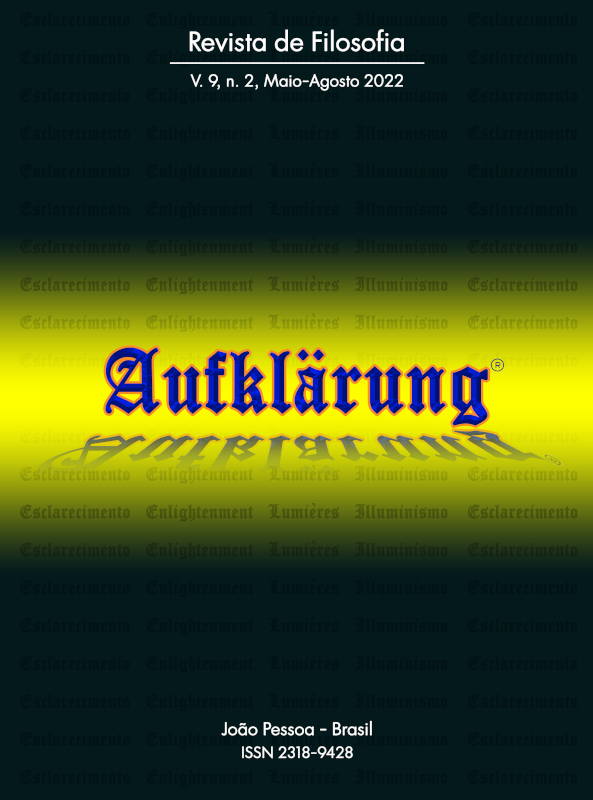Marx's ethics theory and its meaning in building morality for Vietnamese today
DOI:
https://doi.org/10.18012/arf.v9i2.64262Keywords:
Ethics, Marx, Interests, Individual, SocietyAbstract
The more developed society, the more confused people become about the deviant values affecting each individual and organization. Evils, theft, war, crime, and social inequality increased. That confused people with the moral values people want in society. What people want is a good life that people respect and believe. Therefore, morality is a guideline to help people act rightly and is a driving force for human progress. Living ethics help us avoid mistakes in work and life while simultaneously avoiding social evils and contributing more to building and developing society. The article uses materialist dialectics and analytical and synthetic methods to clarify Marx's moral views on the nature of morality, the relationship between interests and morality, moral progress, and forecasting about morality. The formation of communist morality. The article clarifies the content of education and the role of moral training and fostering because each individual in society must live and act according to the principles and standards that society has prescribed to bring certain benefits to themselves and everyone.
Downloads
References
Aertsen, Jana. "Aquinas's Philosophy in Its." The Cambridge Companion to Aquinas (1993): 12.
Aroney, Nicholas. "The Social Ontology of Human Dignity." Paper presented at the IVR World Congress of Philosophy of Law and Social Philosophy, Lucerne, Switzerland, 2019.
Arthur, James, Liam Gearon, and Alan Sears. Education, Politics and Religion: Reconciling the Civil and the Sacred in Education. Routledge, 2010.
Cali, Carmelo. "Representation, Internal." In Glossary of Morphology, 451-54: Springer, 2020.
Csák, János. "Social Futuring–a Normative Framework." Society and Economy 40, no. s1 (2018): 21-45.
Di Ceglie, Roberto. Aquinas on Faith, Reason, and Charity. Routledge, 2022.
Finnis, John. Natural Law and Natural Rights. Oxford University Press, 2011.
Gibbs, Paul, Jill Jameson, and Alex Elwick. Values of the University in a Time of Uncertainty. Springer, 2019.
Grassl, Wolfgang. "Aquinas on Management and Its Development." Journal of Management Development (2010).
Haldane, John. "Philosophy in Relation to Other Disciplines Exploring Human Nature." Metaphilosophy (2022).
Hittinger, Russell. "The Recovery of Virtue: The Relevance of Aquinas for Christian Ethics." Faith and Philosophy 8, no. 4 (1991): 549-54.
Horvat, Saša, Piotr Roszak, and Brian J Taylor. "Is It Harmful? A Thomistic Perspective on Risk Science in Social Welfare." Journal of religion and health (2021): 1-15.
Jenkins, John I. Knowledge and Faith in Thomas Aquinas. Cambridge University Press, 1997.
Johnson, Wayne Gustave. Understanding Morality: Quests for the Good Life. Wipf and Stock Publishers, 2022.
Keys, Mary M. Aquinas, Aristotle, and the Promise of the Common Good. Cambridge University Press, 2006.
Murphy, Mark C. "Natural Law Theory." The Blackwell guide to the philosophy of law and legal theory (2005): 15-28.
Naus, John E. The Nature of the Practical Intellect According to Saint Thomas Aquinas. Gregorian Biblical BookShop, 1959.
Ozoliņš, Jānis T. "Aquinas, Education and the Theory of Illumination." 967-71Taylor & Francis, 2021.
Pasnau, Robert, and Robert Charles Pasnau. Thomas Aquinas on Human Nature: A Philosophical Study of Summa Theologiae, 1a 75-89. Cambridge University Press, 2002.
Perler, Dominik. "Rational Seeing: Thomas Aquinas on Human Perception." In Medieval Perceptual Puzzles, 213-37: Brill, 2019.
Ramsay, Hayden. "Conscience: Aquinas—with a Hint of Aristotle." Sophia 40, no. 2 (2001): 15-29.
Reyna, Zachary Low. "Aquinas's Ecological Vision: Natural Law and Friendship in Contemporary Environmental Political Thought." New Political Science 40, no. 1 (2018): 15-32.
Rhonheimer, Martin. "St. Thomas Aquinas and the Idea of Limited Government." Journal of Markets & Morality 22, no. 2 (2019).
Schaff, Philip. History of the Christian Church. Vol. 3: C. Scribner, 1867.
Stump, Eleonore. Aquinas. Routledge, 2008.
Tück, Jan Heiner. A Gift of Presence: The Theology and Poetry of the Eucharist in Thomas Aquinas. CUA Press, 2018.
Additional Files
Published
How to Cite
Issue
Section
License

This work is licensed under a Creative Commons Attribution 4.0 International License.
Journal general policy
1.This journal works under a Creative Commons License aplied to online journals. That icence can be read in the following link: Creative Commons Attribution 4.0 International (CC BY 4.0).
2.Accordingly to this License, a)the journal declares that authors hold the copyright of their articles without restrictions, and they can archieve them as post-print elsewhere. b)the journal allow the author(s) to retain publishing rights without restrictions.
Metadata Policy for information describing items in the repository
1. Anyone may access the metadata free of charge at anytime.
2.The metadata may be re-used in any medium without prior permission, even commercial purposes provided the OAI Identifier or a link to the original metadata record are given, under the terms of a CC BY license refered for the Journal.







































